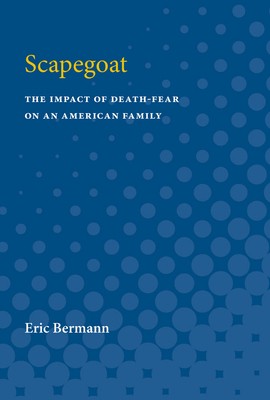
- We will send in 10–14 business days.
- Author: Eric Bermann
- Publisher: University of Michigan Press
- ISBN-10: 0472750259
- ISBN-13: 9780472750252
- Format: 15.2 x 22.9 x 2.1 cm, softcover
- Language: English
- SAVE -10% with code: EXTRA
Reviews
Description
Roscoe A. was eight years old when psychologist Eric Bermann first met him and his family. In kindergarten Roscoe was considered highly creative, but he was also evaluated by his teachers as a potentially dangerous and destructive child capable of uncontrolled aggression toward other children. His parents denied the report. To them, Roscoe was a quiet, well-behaved boy. In the second grade, over the objections and confusions of his parents, Roscoe was finally removed from public school and admitted to a day treatment facility where he could receive psychotherapy. Progress was minimal. After a year of effort there still was no agreement about Roscoe's problems. Mental health professionals despaired. They deemed his parents unworkable, and labelled them deniers of their son's destructive behaviors. In turn the parents blamed the professionals for therapeutic incompetencies and failure to help Roscoe, who, after all, was never a problem at home. The one alternative to terminating the therapeutic effort was the possibility of obtaining new data and fresh insights into the dilemma. It was at this point that Dr. Bermann, a clinical researcher embarked on the study of family interaction, was consulted. He immediately negotiated with the family to visit them in their home where he might observe their interactions in situ. He hoped, with them, that in so doing he might shed some light on the discrepancy in reports about Roscoe's behavior. Dr. Bermann visited the family and recorded his observations regularly and in detail throughout the next year. His analysis of these observations has resulted in this startling book--a research account that is both stunning in the originality of its method and searing in its documentation of an American family in crisis. In the course of his visits Dr. Bermann discovered the family's central and well-concealed secret: Roscoe's father had been for years in precarious health and now was on the brink of death. Although the family nev
EXTRA 10 % discount with code: EXTRA
The promotion ends in 20d.21:34:47
The discount code is valid when purchasing from 10 €. Discounts do not stack.
- Author: Eric Bermann
- Publisher: University of Michigan Press
- ISBN-10: 0472750259
- ISBN-13: 9780472750252
- Format: 15.2 x 22.9 x 2.1 cm, softcover
- Language: English English
Roscoe A. was eight years old when psychologist Eric Bermann first met him and his family. In kindergarten Roscoe was considered highly creative, but he was also evaluated by his teachers as a potentially dangerous and destructive child capable of uncontrolled aggression toward other children. His parents denied the report. To them, Roscoe was a quiet, well-behaved boy. In the second grade, over the objections and confusions of his parents, Roscoe was finally removed from public school and admitted to a day treatment facility where he could receive psychotherapy. Progress was minimal. After a year of effort there still was no agreement about Roscoe's problems. Mental health professionals despaired. They deemed his parents unworkable, and labelled them deniers of their son's destructive behaviors. In turn the parents blamed the professionals for therapeutic incompetencies and failure to help Roscoe, who, after all, was never a problem at home. The one alternative to terminating the therapeutic effort was the possibility of obtaining new data and fresh insights into the dilemma. It was at this point that Dr. Bermann, a clinical researcher embarked on the study of family interaction, was consulted. He immediately negotiated with the family to visit them in their home where he might observe their interactions in situ. He hoped, with them, that in so doing he might shed some light on the discrepancy in reports about Roscoe's behavior. Dr. Bermann visited the family and recorded his observations regularly and in detail throughout the next year. His analysis of these observations has resulted in this startling book--a research account that is both stunning in the originality of its method and searing in its documentation of an American family in crisis. In the course of his visits Dr. Bermann discovered the family's central and well-concealed secret: Roscoe's father had been for years in precarious health and now was on the brink of death. Although the family nev


Reviews